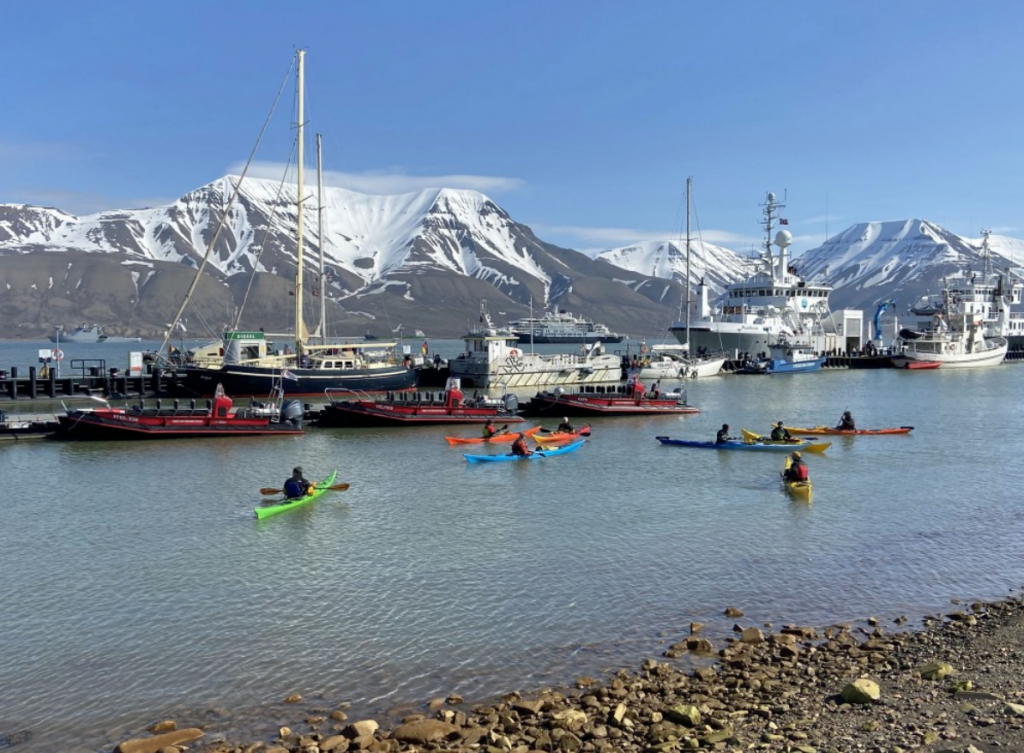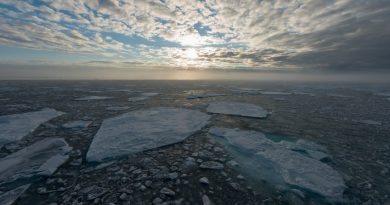Longyearbyen warmer than Paris

Hottest day ever recorded on Planet Earth was July 4. And no surprise, the Arctic feels the heat.
People in Longyearbyen, the world’s northernmost settlement, woke up Wednesday, July 5 to warm winds. By 8 am the temperature was already 14,5° C, local newspaper Svalbardposten reported. That was one degree warmer than Paris.
The day become even warmer and at 1 pm the Norwegian Meteorological Institute reported about 18° Celsius.
Day-to-day temperatures are weather, not climate. Scientists, however, are clear: The Arctic is warming three times as fast as the global average. According to the Norwegian Polar Institute, this is mainly because the melting of snow and ice exposes a darker surface and increases the amount of solar energy absorbed in these areas.
It was New Scientist that first reported about the global average hottest day on Earth on July 4 with 17,18° C recorded two meters above the Earth’s surface. Average temperature is modeled based on worldwide data from the National Oceanic Atmospheric Administration and compiled by the University of Maine.
The new record came only 24 hours after the previous record, measured on July 3, according to New Scientists.
At Svalbard, the trend is more extreme weather. Declining sea-ice in the Greenland Sea is a main reason for more rain in recent years and more will come, the Barents Observer reported last fall.
More landslides are seen and thawing permafrost makes big trouble for locals as houses are sagging and coastal erosions increasing.
The period 1991-2020 had an average June to August temperature at Svalbard airport of 5,5 degrees, and for the last 10 years, the average has been 6,4 degrees, according to the Norwegian Meteorological Institute.
Summer 2022 saw the average even higher, with 7,4 degrees for June, July and August at the airport a few kilometers west of Longyearbyen, the main settlement on the archipelago.
Related stories from around the Poles:
Antarctica: Antarctic changes could become tipping points with global implications, says report, Eye on the Arctic
Arctic: Arctic could be ice-free as early as 2030s says study, Eye on the Arctic
Canada: “Our climate is changing before our eyes,” says WMO upon release of new report, Eye on the Arctic
Greenland: Climate change accelerating ice loss from peripheral glaciers, Eye on the Arctic
Finland: Unusually warm April weather, sunshine records in northern Finland, Eye on the Arctic
Sweden: High risk of wildfires in many parts of Sweden, including North, Radio Sweden
United States: Bering Sea ice at lowest extent in at least 5,500 years, study says, Alaska Public Media



